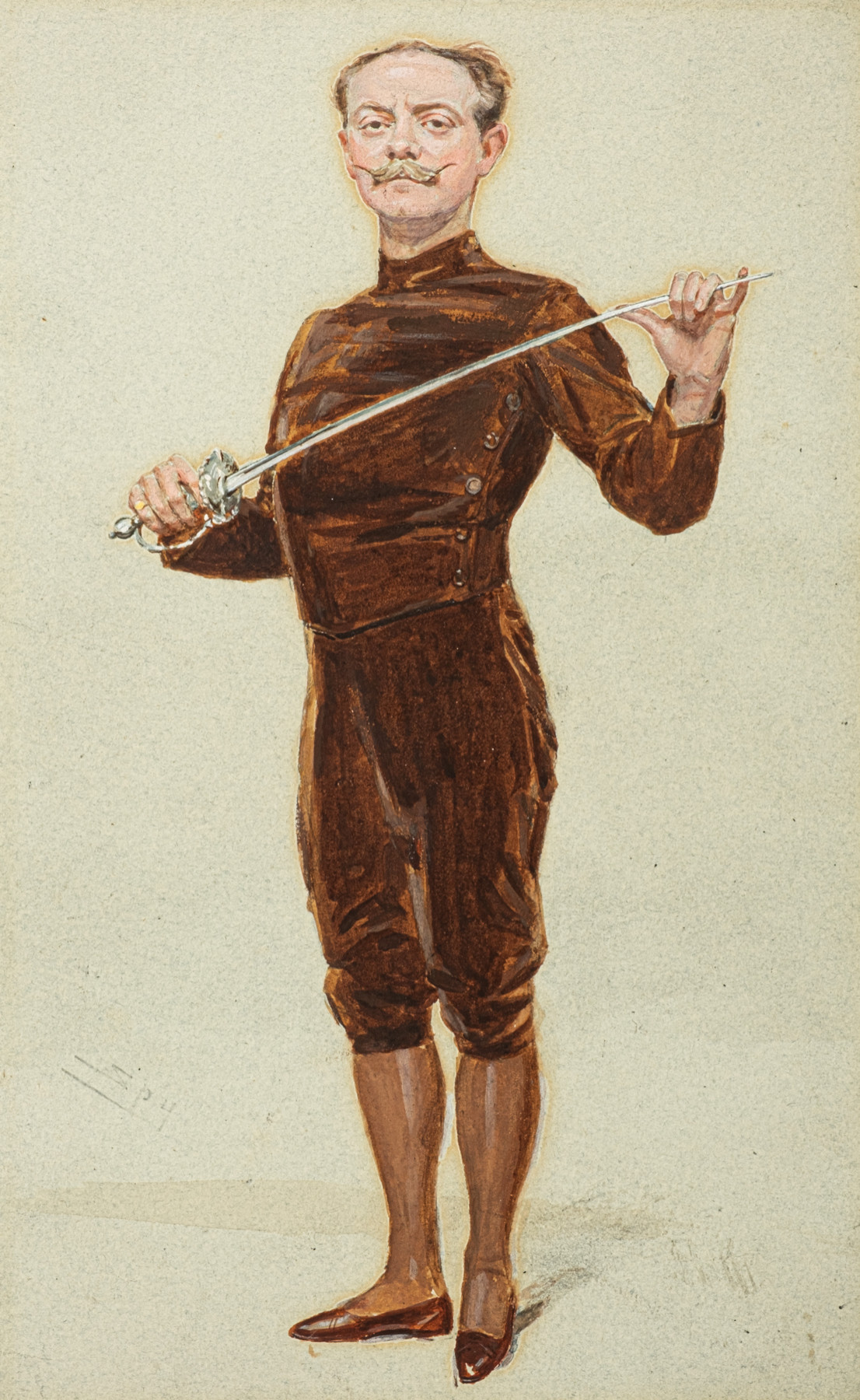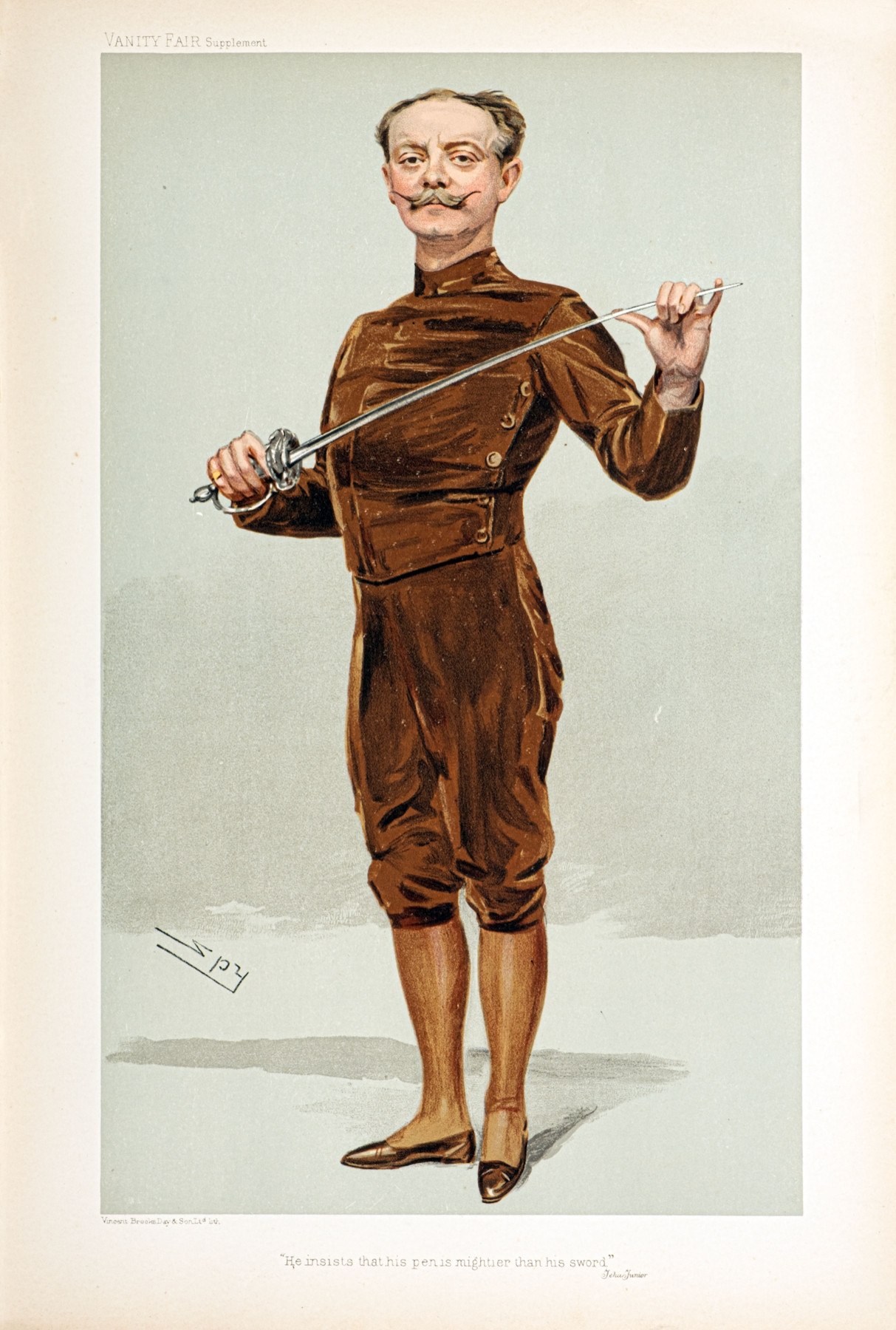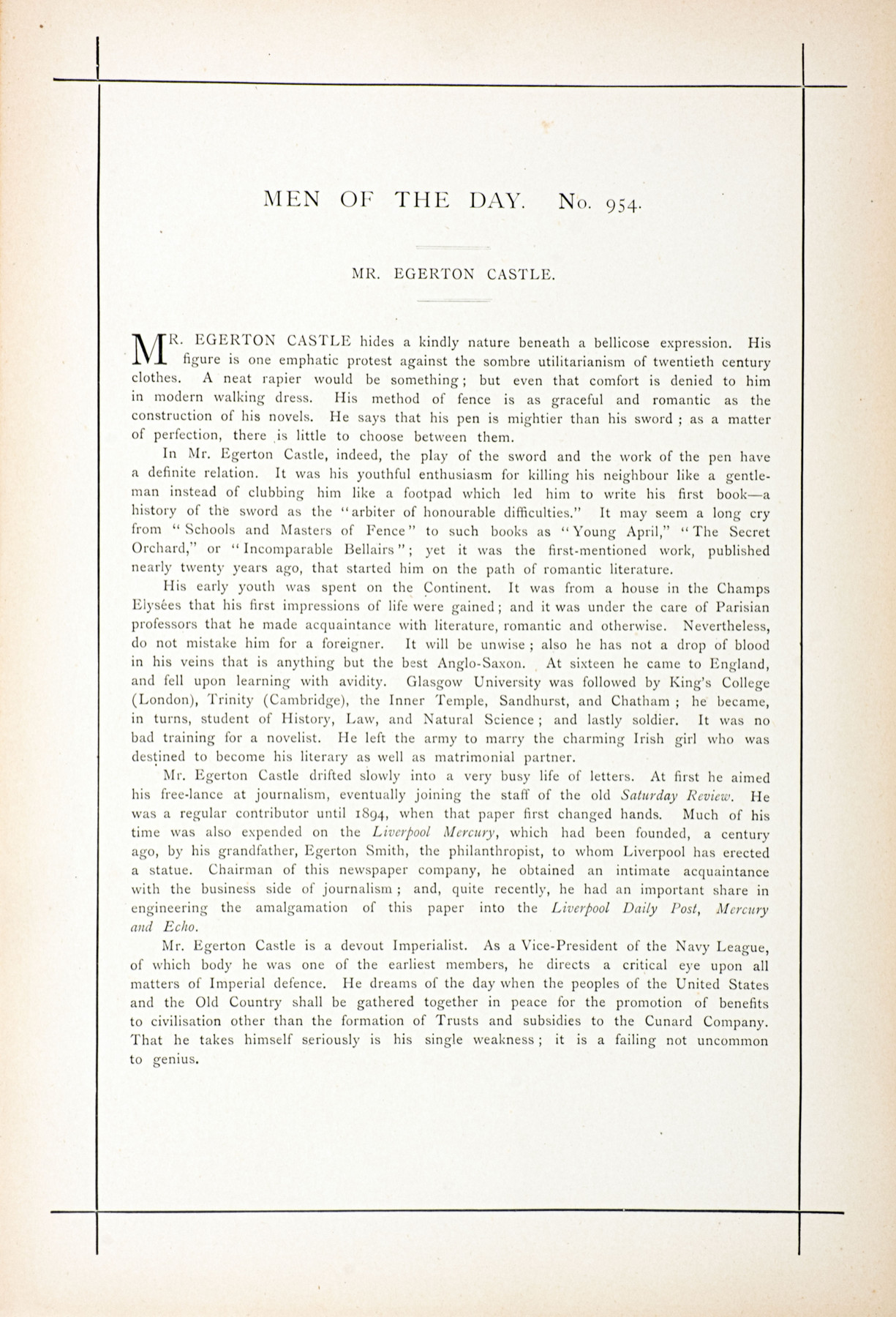


Born into a wealthy publishing family, Egerton Castle was an author and swordsman, and was a leading figure in the revival of the art of historical fencing. In 1885, he wrote Schools and Masters of Fencing: From the Middle Ages to the Eighteenth Century, the standard reference on the sport, and captained the British epeé and sabre teams at the 1908 Olympic Games. He also found fame as writer of fiction, co-authoring several novels with his wife, Agnes. A number of these novels, including The Pride of Jennico (1897), Rose of the World (1905) and The Bath Comedy (1900), were later adapted into silent films.
“Mr Egerton Castle hides a kindly nature beneath a bellicose expression. His figure is one emphatic protest against the sombre utilitarianism of twentieth century clothes. A neat rapier would be something; but even that comfort is denied to him in modern walking dress. His method of fence is as graceful and romantic as the construction of his novels. He says that his pen is mightier than his sword; as a matter of perfection, there is little to choose between them.
In Mr. Egerton Castle, indeed, the play of the sword and the work of the pen have a definite relation. It was his youthful enthusiasm for killing his neighbour like a gentleman instead of clubbing him like a footpad which led him to write his first book - a history of the sword as the ‘arbiter of honourable difficulties’. It may seem a long cry from ‘Schools and Masters of Fence’ to such books as ‘Young April’, ‘The Secret Orchard’, or ‘Incomparable Bellairs’; yet it was the first-mentioned work, published nearly twenty years ago, that started him on the path of romantic literature.
His early youth was spent on the Continent. It was from a house in the Champs Elysées that his first impressions of life were gained; and it was under the care of Parisian professors that he made acquaintance with literature, romantic and otherwise. Nevertheless, do not mistake him for a foreigner. It will be unwise; also he has not a drop of blood in his veins that is anything but the best Anglo-Saxon. At sixteen he came to England, and fell upon learning with avidity. Glasgow University was followed by King's College (London), Trinity (Cambridge), the Inner Temple, Sandhurst, and Chatham; he became, in turns, student of History, Law, and Natural Science; and lastly soldier. It was no bad training for a novelist. He left the army to marry the charming Irish girl who was destined to become his literary as well as matrimonial partner.
Mr. Egerton Castle drifted slowly into a very busy life of letters. At first he aimed his free-lance at journalism, eventually joining the staff of the old Saturday Review. He was a regular contributor until 1894, when that paper first changed hands. Much of his time was also expended on the Liverpool Mercury, which had been founded, a century ago, by his grandfather, Egerton Smith, the philanthropist, to whom Liverpool has erected a statue. Chairman of this newspaper company, he obtained an intimate acquaintance with the business side of journalism; and, quite recently, he had an important share in engineering the amalgamation of this paper into the Liverpool Daily Post, Mercury and Echo.
Mr. Egerton Castle is a devout Imperialist. As a Vice-President of the Navy League, of which body he was one of the earliest members, he directs a critical eye upon all matters of Imperial defence. He dreams of the day when the peoples of the United States and the Old Country shall be gathered together in peace for the promotion of benefits to civilisation other than the formation of Trusts and subsidies to the Cunard Company. That he takes himself seriously is his single weakness; it is a failing not uncommon to genius.”